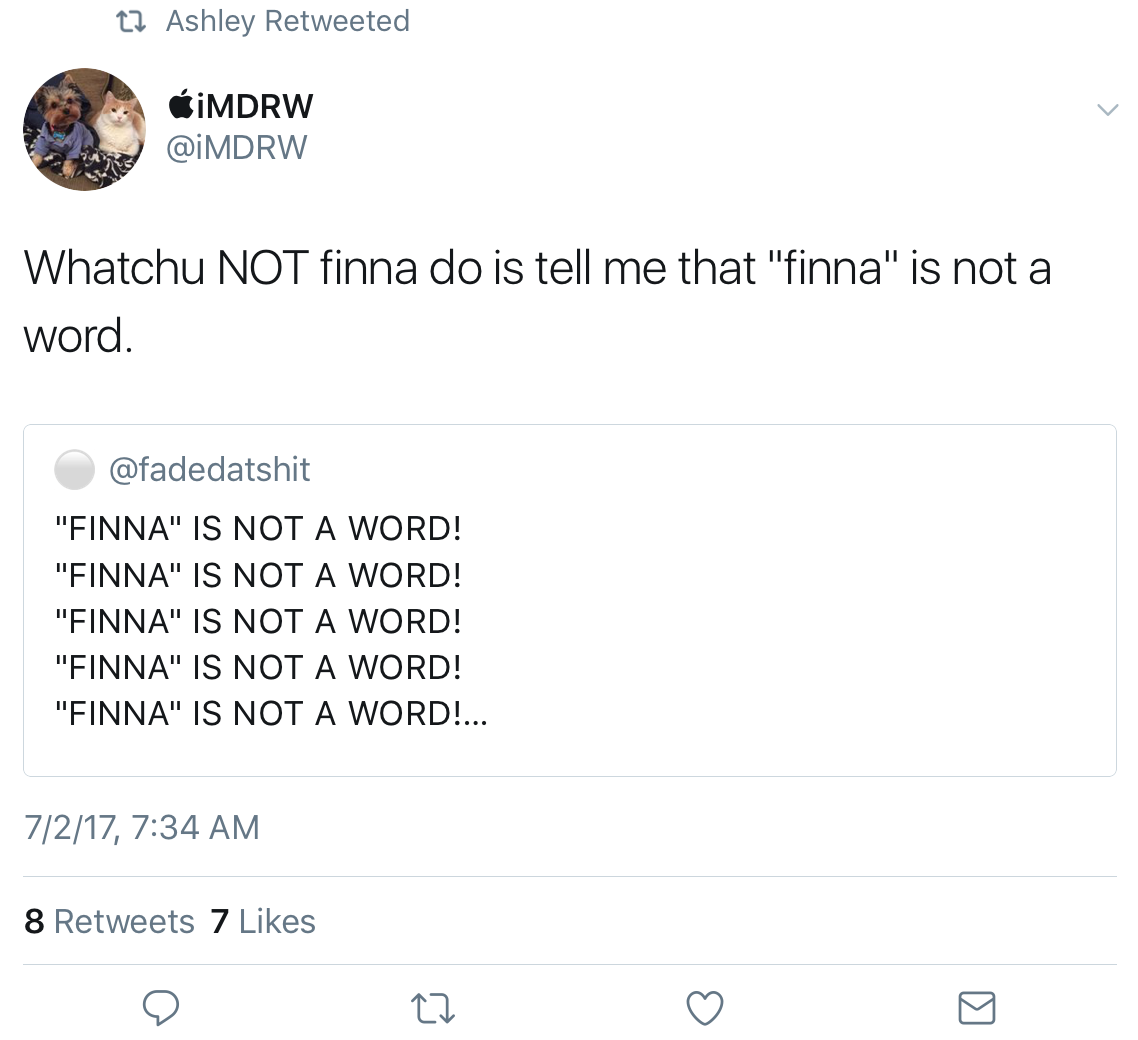The Evolution of Language in Real Time
by Larry Kollar
From the first time a particular combination of sounds became associated with a particular meaning, languages have grown, diverged, spread, and sometimes died. Sometimes, people take exception to growth and change…

The word finna has existed in certain regional and ethnic speech communities since at least 1917 (corrections welcome). But thanks to Twitter, and Black Twitter in particular, it recently began spreading into general use. In the same way gonna is a contraction of “going to,” finna is a contraction of “fixing to.” Fix, here, is used in its sense of “prepare,” like “I’ll fix lunch.” This usage, “I’m fixing to do something” is particular to African-Americans and southeastern whites. This isn’t unique, of course—the same communities use y’all (you all) as a nominal second-person plural, a construct that does not exist in “standard” (i.e. white northern) English, although it often takes on a singular meaning with all y’all as the ironic plural.
In the same way mass media (radio and television) ate away at regional accents and usages, social media now allows them to blend in ways nobody would have expected fifty years ago. In 1985, people not living in or near Philadelphia would have scratched their heads over “my jawn,” or “fuhgeddaboudit” outside New York or New Jersey. But like “finna,” these words have escaped their old boundaries.
Many educated people, or white ones at least, sneer at such usages as “slang,” often with classist or racist undertones. But languages evolve. A hundred years ago, fake, bogus, joke, and jazz were considered slang, and the latter was a verb for casual sex. Fifty years later, my parents would tell me “Don’t give me that jazz,” when they thought I was trying to lie or obfuscate. Nowadays, these words have accepted (and polite) universal meanings, and us educated white people use them without irony or second thought.
Social media lets people from every place and every background be heard, and those of us who claim we speak Standard American English get to hear new words and watch how meanings shift over time—often in real time. In the same way America was called a “melting pot” where different ethnic groups (European ones, at least) blended and fused into a new people, social media is a melting pot for language—one that doesn’t need generations to work its magic.
A word is a word if a group of people accept it, even if the wider population never hears it. So relax, let go of your prejudice, and watch language evolve in real time. But have a little respect for those communities who still feel some ownership over those words. We might not be able to pinpoint the exact origin of every new word or phrase, like when Kayla Newman (aka Peaches Monroee) invented “on fleek,” but we can at least acknowledge the communities who are driving our evolving language.
Subscribe via RSS
